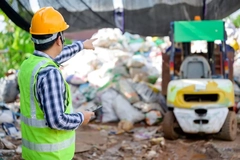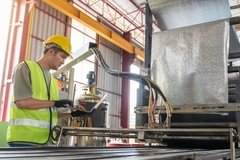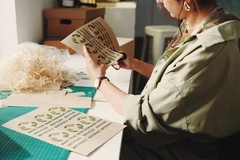PakTech unravels recycled plastic versus fiber debate as manufacturing challenges persist

Packaging designer and manufacturer PakTech has commissioned a study including 500 packaging experts from the UK, Germany, France, Spain, and Italy. The company identifies a “clear gap” between the industry’s perception and reality of plastic use.
Over 85% of respondents said that plastic remains essential for the CPG sectors. However, 67% also shared that their companies are taking steps to reduce plastic use or are transitioning to “more sustainable” plastic options.
“We commissioned this research to gain deeper insight into the real-world challenges facing European manufacturers and co-packers,” says Gary Panknin, sustainability officer and supply chain manager at PakTech.
“What emerges is that while companies are not eliminating plastic packaging entirely, they are actively seeking to move away from virgin and single-use plastics. The real sustainability challenge lies in helping brands overcome barriers to reducing their environmental footprint by using more recycled plastics and making informed, data-driven material choices.”
The findings reveal a split in perception with some respondents favoring replacing virgin plastics with fiber, while others support replacing recycled plastics with fiber. Others focus on boosting the share of multipack plastics made from recycled materials.
Packagers’ sustainability and operations teams were found to be more likely to see greater value in boosting recycled plastic use, while marketing and procurement teams leaned toward fiber.
Recycled plastic versus fiber
 Over 85% of respondents say plastic remains essential for the CPG sectors.PakTech argues that data-driven, “smart” material choice is more important to ensuring environmental sustainability than completely eliminating plastic.
Over 85% of respondents say plastic remains essential for the CPG sectors.PakTech argues that data-driven, “smart” material choice is more important to ensuring environmental sustainability than completely eliminating plastic.
According to the quantitative research, UK respondents were most likely to perceive recycled plastic as a more sustainable option than fiber (63%), followed by Spain (52%), and France (51%).
Meanwhile, respondents in Germany (47%) and Italy (53%) expressed that they see fiber-based materials as more sustainable.
The researchers note that job titles also influence perceptions, with marketing teams being the most sceptical toward recycled plastics’ sustainability credentials.
The research further shows that two-thirds of respondents’ organizations have integrated ESG targets tied to smarter plastic use. However, the companies’ actual practices in relation to their commitments appear to “vary widely.”
Perception and reality: rHDPE
Over 80% of all respondents agree that recycled high-density PE (rHDPE) offers durability, density, and cost advantages, while indicating that “environmental concerns” are a barrier to using the packaging material.
 Marketing teams are more likely to be sceptical toward rHDPE than fiber.PakTech argues that there is a gap between rHDPE perceptions and data. “When looking at specific examples, a PakTech LCA found that rHDPE handles can significantly reduce the environmental impact of beverage packaging compared to paperboard cartons or carriers.”
Marketing teams are more likely to be sceptical toward rHDPE than fiber.PakTech argues that there is a gap between rHDPE perceptions and data. “When looking at specific examples, a PakTech LCA found that rHDPE handles can significantly reduce the environmental impact of beverage packaging compared to paperboard cartons or carriers.”
“Among the formats analysed, rHDPE showed the lowest potential environmental impacts, with a carbon footprint of 0.022–0.034 kg CO2 equivalent and a Global Warming Potential two to five times lower than paperboard alternatives.”
“With regulatory pressure increasing under the EU Packaging and Packaging Waste Regulation and consumer expectations rising rapidly, packaging professionals are seeking materials that offer circularity, operational efficiency, and compliance,” says Panknin.
“Our message is simple: not all plastics are created equal, and when evaluated on performance, cost, and environmental impact, recycled plastic solutions can not only meet but often exceed expectations.”
He argues that the idea that sustainability is simply about using less plastic is giving way to the perspective that “the right material for the job, and recycled secondary packaging materials, such as rHDPE, have a valuable role to play in meeting these demands.”










